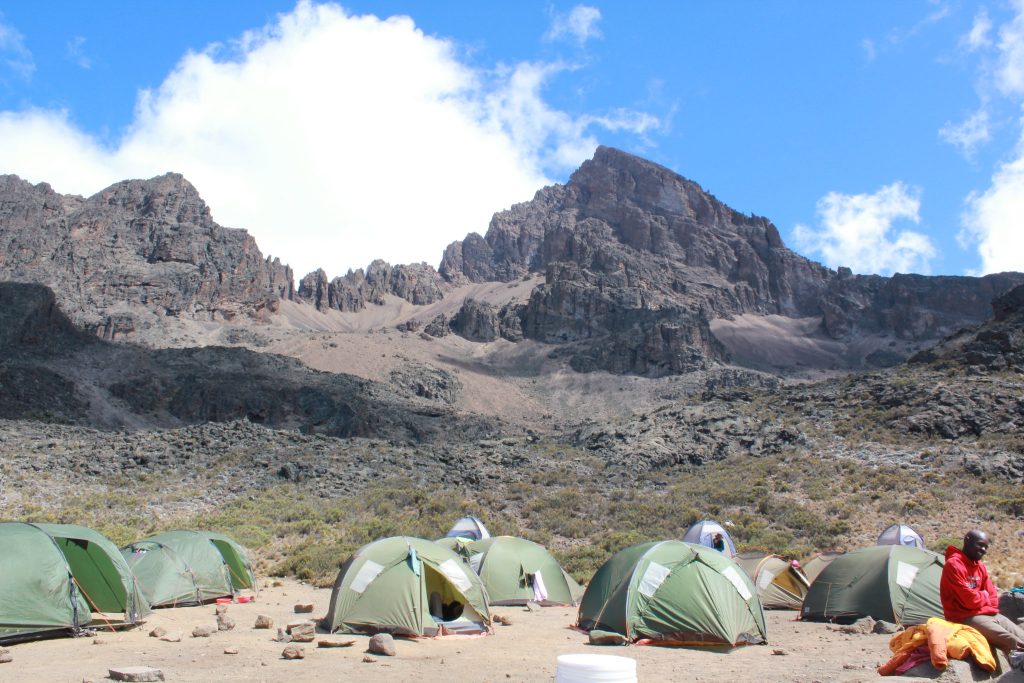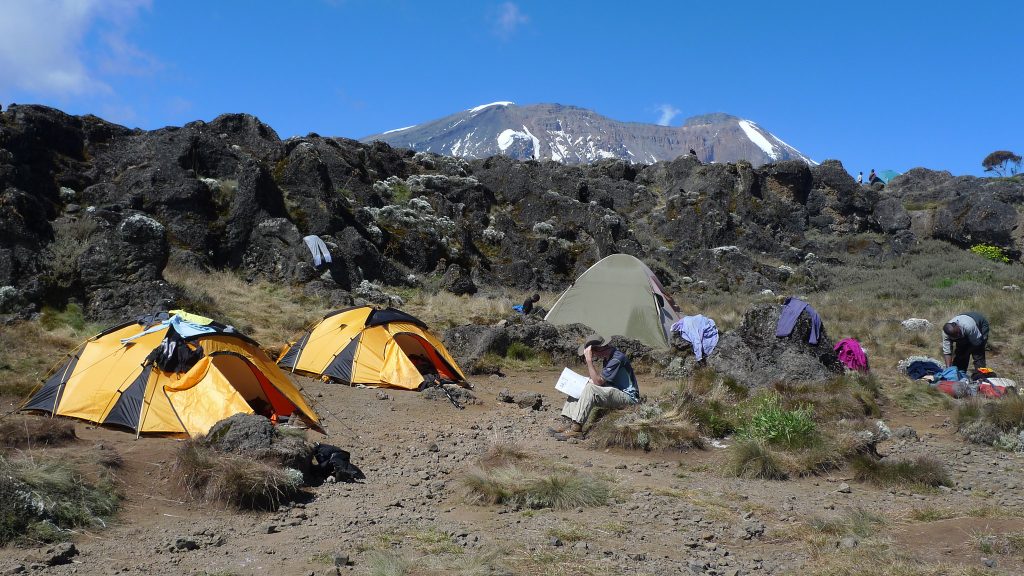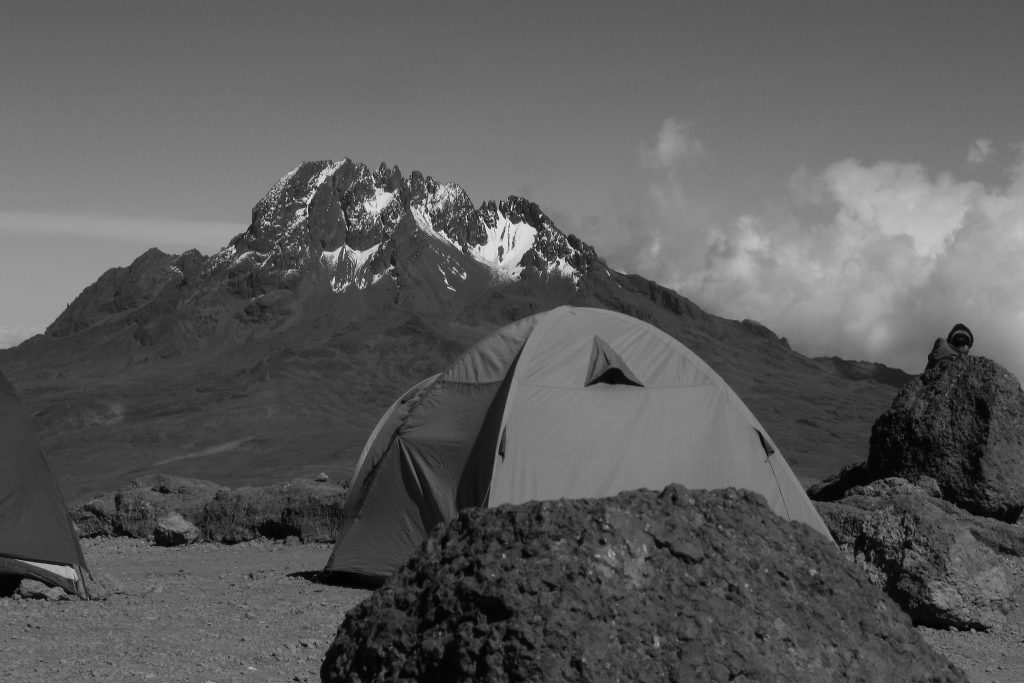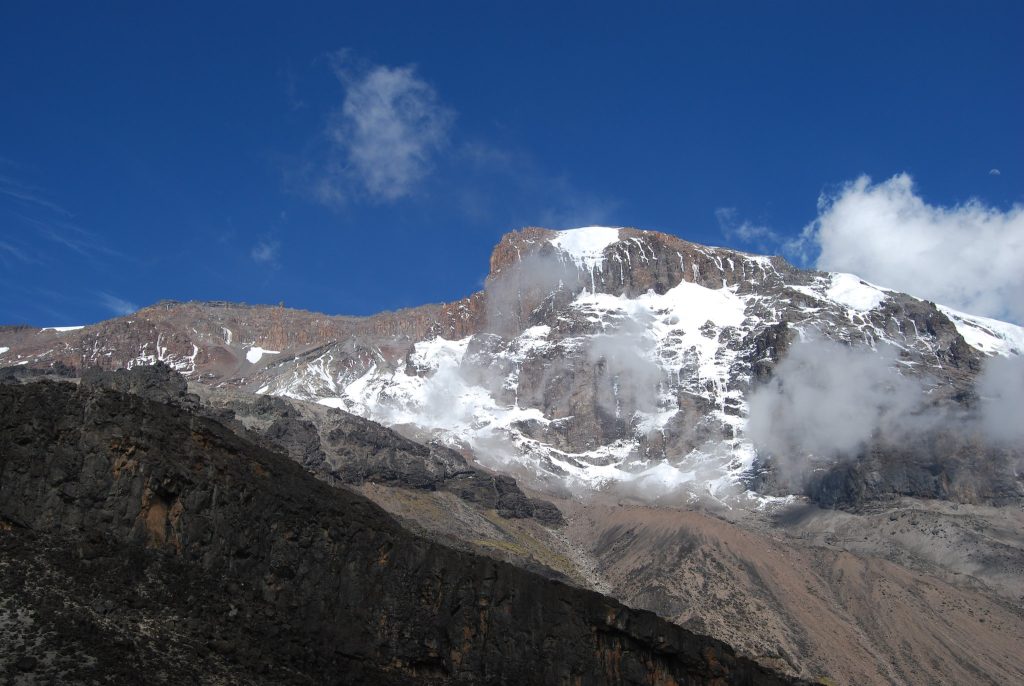7 Days – Rongai Route
Route Overview
The only path that approaches Kilimanjaro from the north and is close to the Kenyan border is the Rongai route. Despite growing in prominence with climbers, Rongai is not very busy. It is the recommended route for climbers who want a less congested alternative to the busy Marangu route, who want a more remote walk, and who are doing it during the rainy season.
Six days is the bare least needed for this trek, while seven days is advised. Rongai makes up for the lack of variety in the scenery by traveling through genuine wilderness areas for days before connecting to the Marangu route at Kibo camp. The Marangu route is descended on this route. Rongai is a route that is relatively challenging and is highly advised, especially for people who have little prior backpacking experience.
Day by Day Itinerary
Day 1: Arrive in Tanzania
Your guide will pick you up from the Kilimanjaro International Airport and drive you to your hotel in Moshi. Your guide will give you a briefing on your forthcoming trip and conduct an equipment check to ensure you have all the appropriate mountain gear. On this day, the equipment that is lacking can be rented.
Meals: Breakfast, Lunch & Dinner Included
Day 2: Nalemoru Gate (1990m) to Simba Camp (2625m)
To begin the Rongai path, we will travel this morning to the town of Nale Moru. The trek’s initial section passes through farms and pine trees. On the way, you might get an opportunity to observe the stunning Colobus monkeys or, if you’re lucky, elephants or buffalo. The Simba Camp, which is 2625 meters above sea level and next to a moorland zone, will be our first camp.
Distance covered: 8km / 5mi
Approx. time taken: 4 – 5 hours
Meals: Breakfast, Lunch & Dinner Included
Day 3: Simba Camp (2625m) to 2nd Cave Camp (3480m)
The Second Cave Camp, which is in the moorland zone and has spectacular views of Kibo and the Eastern ice fields on the crater rim, is reached after a morning climb that involves a gradual ascent.
Distance covered: 5km / 3.1mi
Approx. time taken: 3 – 4 hours
Meals: Breakfast, Lunch & Dinner Include
Day 4: Kikelewa Cave (3679m) – Mawenzi Tarn camp (4303m)
Excellent views of this wilderness area are available after a short but difficult trek up grassy slopes. Shortly before you get at your next camp at Mawenzi Tarn, which is magnificently positioned beneath the towering spires of Mawenzi, the vegetation zone ends. The afternoon should be used for exploration and acclimatization.
Distance covered: 8km / 5mi
Approx. time taken: 4 – 5 hours
Meals: Breakfast, Lunch & Dinner Included
Day 5: Mawenzi Tarn camp (4303m) – Kibo hut (4730m)
We leave for the west after breakfast and continue climbing the mountain on the east side of Kibo, traversing the saddle between Mawenzi and Kibo, taking 4 to 5 hours to reach Kibo Hut. Resting up for the final ascent, which starts after midnight, takes up the remainder of the day. We will spend a night at Kibo hut.
Distance covered: 8km / 5mi
Approx. time taken: 5 – 6 hours
Meals: Breakfast, Lunch & Dinner Included
Day 6: Kibo hut (4730m) – Uhuru Peak (5895m) – Horombo hut (3705m)
The going gets really difficult once you wake at around 23:20 and head out into the darkness after having some tea and biscuits. The Hans Meyer Cave (5150m), which also serves as an excellent resting location, is reached along a rocky path in the trail’s initial portion.
At Gillman’s point (5 681m), which is situated on the crater rim, the path then ascends in a zigzag pattern. This stretch requires a lot of physical and mental work because it is very steep and covered in stone scree. Most likely, this is the toughest part of the entire course. Slow down and perform the Kili shuffle. Snow typically covers the entire distance from Gillmans Point to Uhuru Peak (5895m), Africa’s highest point.
How long you have to take pictures before the three-hour descent back to Kibo hut depends on the weather conditions at the peak. After a brief pause at Kibo Hot, you gather your equipment that you had left behind for the ascent and go (3 hours) to Horombo Hut, where you will spend the night. In comparison to the ascent, the trip back to Horombo Hut will seem fairly quick. Be ready for a really challenging day because you will be walking for almost 14 hours in total. Later in the evening, you eat your final meal on the mountain (with soft drinks and beer available for purchase at the camp office) before a well-earned night of restful sleep, accompanied by vivid memories and stirring emotions.
Approx. time taken: 7 to 8 hours to reach Uhuru Peak, 6 to 8 hours to descend to Horombo
Distance: Approxim 12 – 15 hours
Meals: Breakfast, Lunch & Dinner Included
Day 7: Horombo hut (3705m) – Marangu Gate (1860m)
After breakfast, you continue the 6-hour descent to the Marangu gate through the Mandara lodge. It is strongly advised that you wait to tip your porters until you and all of your equipment have arrived at the entrance securely.
You enter your name and contact information in a register at Marangu gate. Successful climbers can also pick up their summit certificates here. Green certificates are given to climbers who made it to Gillman’s Point (5685 m), while gold awards are given to those who made it to Uhuru Peak (5895 m).
You now return to Moshi via car for a much-needed hot shower, food, a comfortable bed, and celebrations!
Hiking time: 6 hours
Distance: Approximately 29 km
Meals: Breakfast, Lunch & Dinner Included
Day 8: Departure
After the hike, you have the rest of the day to relax before your trip home. You might visit Moshi town and buy some souvenirs before going to the airport, depending on your travel schedules.
If you want to continue experiencing Tanzania, add-ons like safaris and trips to Zanzibar are also available.
Meals: Breakfast Included
Book Now
Items included:
- Professional, experienced, mountain guides:
- All Park fees
- Rescue fees
- All meals while on the Mountain
- Arrival and Departure transfers
- Guides, Porters, cook salaries and park fees
- Quality Mess tents with table and chairs
- Large portions of fresh, healthy, nutritious food
- Clean, purified drinking water
- Crisis management and safety procedures
- Fair and ethical treatment of porters
- Flying Doctors insurance (AMREF) during the safari
Items excluded:
- International Flights
- Alcoholic and soft drinks not included
- Visa fees
- Tips
- Personal spending money for souvenirs etc.
- Travel insurance







